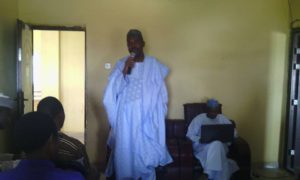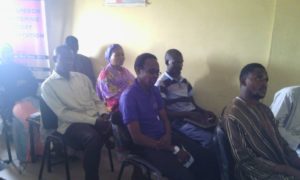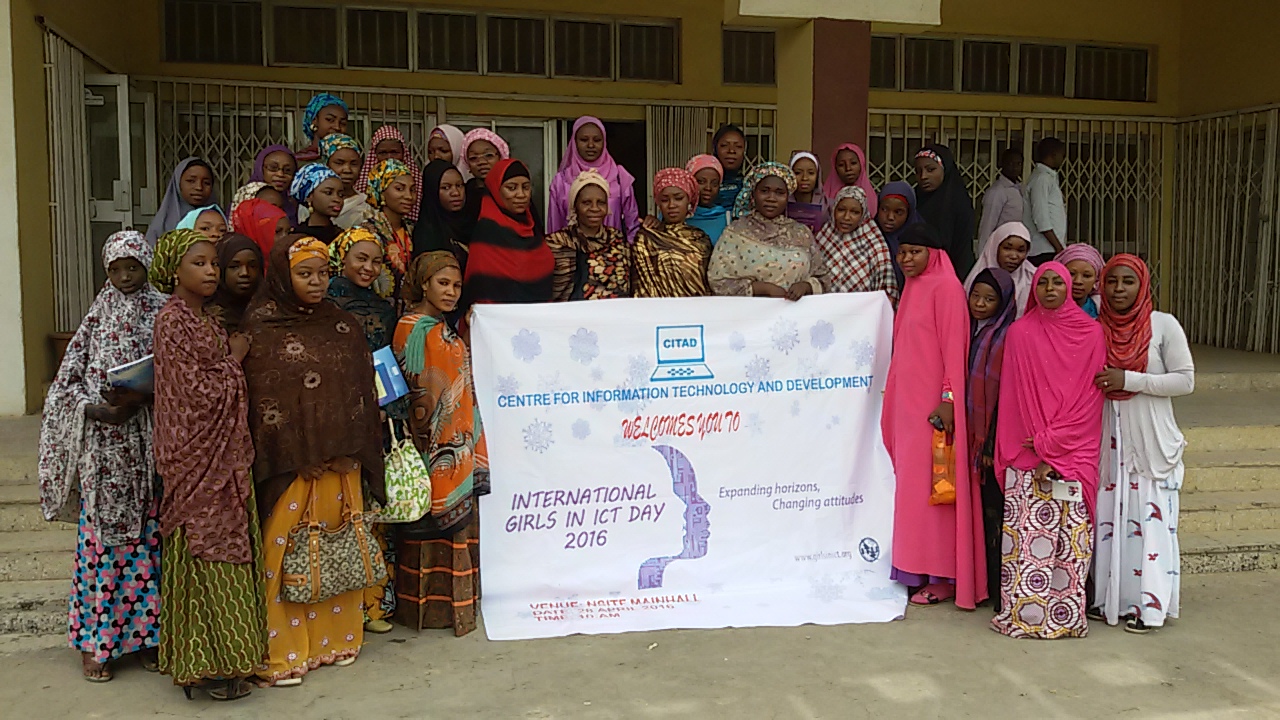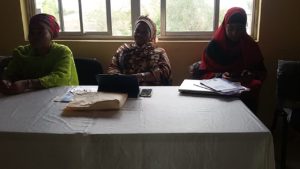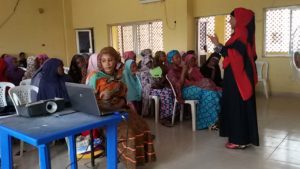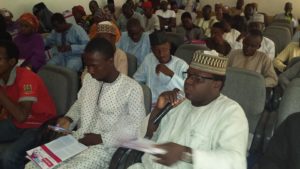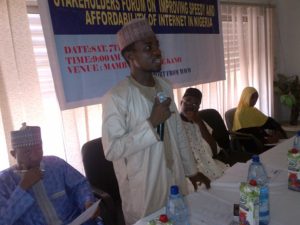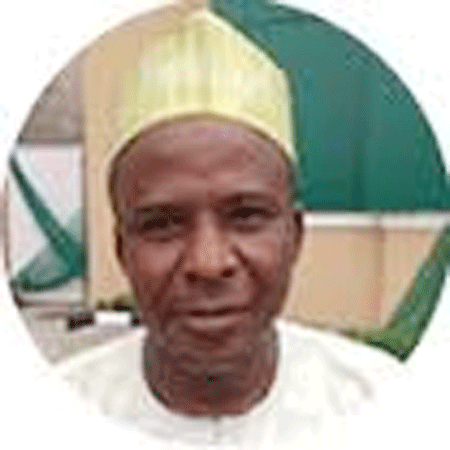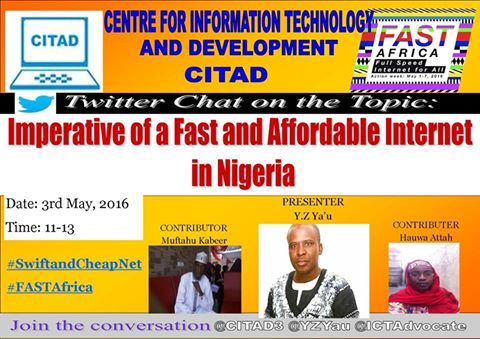Text of Press Conference by Y. Z. Ya’u, Executive Director, Centre for Information Technology and Development delivered on Sunday, 1st May, 2016 at the NSIFT Complex, Kano on the occasion of the Launching of the Campaign #SwiftandCheapNet
INTRODUCTION
I, on behalf of the Centre for Information Technology and Development (CITAD), welcome you to this press conference, which is aimed at launching our campaign, #SwiftandCheapNet. The campaign is part of an Africa wide campaign code named #FASTAfrica, standing for Fast, Affordable, Safe and Transparent internet for All in Africa. It is a campaign initiated first by the World Wide Web Foundation’s Web We Want and Alliance for Affordable Internet (A4AI) and involving over 30 groups across Africa. CITAD is one of these groups.
The objective of the campaign is to highlight the need to work with all stakeholders to ensure that the speed of internet is improved safety mainstreamed in its use, cost is reduced and the level of affordability is enhanced such that more people, if not all, are able to access and use the internet in the country.
Nigerians access internet that is not only slow but also costly, thus making it difficult for many people to afford it. Internet service providers in the country often hardly keep to any quality of service agreements. This is because there has not been demonstrated capacity on the part of the regulatory to ensure enforcement of such agreements. The regulator itself is not proactive because there has not been sufficient demand from the public for faster and more affordable internet access in the country. This is the result of the fact that the public has poor understanding of the pricing of internet access as well on the working of grievance mechanisms in the sector.
We intend to, during the week long campaign (1-7, May), raise public awareness through a series of public enlightenment programmes that will mobilize the public to demand for faster and more affordable internet access and to engage providers and the regulatory agencies on the need to initiate processes that will improve the speed of internet access and make it cheaper in the country.
THE INTERNET SITUATION IN NIGERIA
It is globally agreed that the internet today is a key tool for development. Whether as an individual or a collective as community, state or nation, it is a key to social-economic transformation. The discourse to recognize access to internet as new category of human rights has reached advance stage. Â Given that education is not possible without the internet today, it is too obvious that if education remains a right, the tool to the acquisition of that right must also remain a right.
Given this, it is important for Nigerians to have access to internet that is fast and cheap, hence the hashtag of our campaign, #SwfitandCheapNet. If not, we stand the danger of being left behind. Already the country is coming to the SDGs with huge deficit of the MDGs and therefore it has to cover up this lost ground and move toward achieving the SDGs. In doing this, it must deploy all the arsenals available at its disposal and fast and affordable internet is key.
Current statistics show that by February this year, there are over 214,234,052 connected lines in the country, of which 210,202,453 are GSM. Out of this, active lines were 148,620,359, among which 146,288,370 are GSM. The teledensity stood at 106.16, meaning that every Nigerian out to have at least one active line. Â In the same vain, the internet subscription data show that there are there are 93,600,505 internet subscribers on the platforms of the four GSM services providers. This was down from 97,824,017 in November 2015.
Given the fantastic growth of the gsm which has become the major means through which most Nigerians access the internet, it may be tempting to read this as evidence that indeed many Nigerians are able to afford and use the internet. This is far from the true. We know that given the poor quality of services that Nigerians receive from their service providers, many are forced to have three or four lines. In fact, dual sim and quadruple sims are the most common sought after of cellphones in the country.
Data from the International Telecommunications Union (ITU) show that Internet penetration for Nigeria in fact stood at 42.68%, meaning that the vast majority of Nigerians do have access to the internet. Â Although there is G3 network across many areas of the country, we know that majority Nigerians rely on slow speed from GSM service providers, a situation that discourage many from using the internet. Broadband is still a luxury, limited to just 10% of the internet population (actually 15,740 subscriptions by 2014). Indeed the National Broadband Plan has proposed to move this to 30% by the year 2017. Even if this has been achieved, that means many will still be left with slow speed of Nigerians.
Slow speed has many implications, one of which was recently seen during the JAMB CBT examination. As candidates are auto-timed to respond to questions, a slow internet means that that even before student is able to load the question, his or her time was off and therefore scores zero for that question. This was one of the factors for the mass failure seen this year.
But slow spend has also implication in cost of use of the internet. As service is slow, your data get exhausted without getting the information you wish to upload or download. In fact, many cannot upload video or download same. Without streaming, the use of the internet as a platform for delivery learning is constrained. The single most important inhibitor to the roll out of e-learning in the country is the cost of bandwidth. Instead, so many schools that have VSAT donated to have seen these dishes become decorative material as neither the schools nor their parent ministries are able to pay the bandwidth for the schools to continue to access and use internet.
Affordability is measured by the cost of access. While in general affordability is relative, it can be contextualized within the cost of living of the society and this allow for cross-community comparison. One indicator of affordability is the comparative price of fixed broadband price as percentage of household disposable income. The ITU set a cap of 5% of disposable income as affordable. Whereas the price in Ireland for example is 0.37% of the disposable income, in Nigeria, it is 35.06%, meaning that to afford fixed broadband in Nigeria, one has to spend 35% of their household income. This shows that the low level of affordability of internet in the country.
Both speed and affordability are shaped by available internet infrastructure in the country and the proactiveness of the regulatory agencies. Â With respect to the infrastructure, government is still to demonstrate commitment to ensure that Nigerians have access to high speed internet. While there are several submarine cables that have landed in the country, the inland connection has not been well developed. Fiber links are limited to a few citizens. The National Broadband plan has remained more of a beautiful document than one that is rigorously being implemented. The infrastructure profile of the country can be seen from the ITU computed ICT development Index (IDI) which for 2013 ranked Nigeria as number 133 out of 186 countries, a slight improve and from 2012 when the country was No 135. Even within the African continent, Nigeria was ranked number 14, below countries such Senegal, Ghana South Africa, Mauritius, etc.
On the part of service providers, they complained about the high costs of right of way resulting in the high cost of leasing transmission infrastructure; long delays in the processing of permits; multiple taxation at Federal, State, and Local Government levels and having to deal with multiple regulatory bodies; damage to existing fiber infrastructure as a result of cable theft, road works and other operations; and the lack of reliable, clean grid electricity supply. These are in their view in the domain of government to address.
On the side of regulatory agency, the Nigeria Communication Commission (NCC) has responsible to regulate the sector. It is only recent that it has awakened up to its responsibility. But even as we notice an appreciable level of proactive regulatory oversight, more has to be done. Enforcement of quality standards, effective dispute resolution mechanisms and customer protection services have to be rigorously pursued.
DEMANDS AND RECOMMENDATIONS
Given the state of internet service in the country, we would like to make the following recommendations and calls.
Governments
- Address obstacles for the expansion and deployment of network rings by the ISPs
- Review and implement the National Broadband Plan Network
- Ensure that the bridging affordability principle embedded in the establishment of the Universal Service Provision Fund is driven through diligent auditing of programmes, projects and initiative undertaken by the agency
- Improve power supply as key factor in determining the cost of service by service providers
- Ensure that all internet-related laws and policies are clear, transparent and in line with the principles contained in the African Declaration on Internet Rights and Freedoms
Regulatory Agencies
- Ensure that all ISPs operate within the law and within acceptable limits of Quality of Service agreement
- Engage in proactive oversight to ensure compliance with quality of service agreement
- Engage government with a view to addressing obstacles to network expansion and rollout of addition networks by service providers
- There is need to license more ISPs over the current 25 to ensure good competition that can drive quality of service
- Direct USPF to drive connection in rural areas than just providing computers. While computers are important, without access to affordable bandwidth, these computers will remain underutilized.
ISPs
- Take active steps to improve speedy and reduce coat of access to their services
- Ensure that they provide transparent quality service agreement that their clients can hold them accountable to
- Expand their network coverage and capacity to reduce congestion that reduce speedy
- Internalize and apply the “Respect, Protect and Remedy†framework to fulfill their duties to uphold internet rights in line with African Declaration on Internet Rights and Freedom
The Public
- Join the campaign for fast and affordable internet in the country
- Ensure that you report any degradation from standard quality threshold that you signed with your service providers
- Insist on compensation to loss of service or poor quality that you get from your ISPs
- Support and promote the adaptation of the African Declaration on Internet Rights and Freedoms by our governments
- Educate others about their rights and freedoms relating to the internet
CONCLUSION
We hope that the media will amplify e message contained in this press conference that all stakeholders need to work to ensure that we have fast and cheap internet in the country. We thank you for honoring our invitation and for the support and cooperation you have been giving us. We equally wish to invite you to the Stakeholders Forum on Improving Internet Speed that will hold on 7th May, 2016

